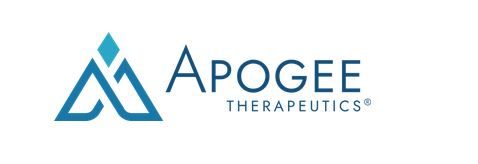- Clinical Technology
- Adult Immunization
- Hepatology
- Pediatric Immunization
- Screening
- Psychiatry
- Allergy
- Women's Health
- Cardiology
- Pediatrics
- Dermatology
- Endocrinology
- Pain Management
- Gastroenterology
- Infectious Disease
- Obesity Medicine
- Rheumatology
- Nephrology
- Neurology
- Pulmonology
Apogee Hopes Raised by Phase 2 Data for APG777 to be a Best-In-Class for Atopic Dermatitis
The investigational IL-13 inhibitor showed topline EASI-75 of 66.9% and reduced injection frequency in part A of the APEX phase 2 clinical trial.
Apogee Therapeutics today announced positive 16-week data from Part A of its phase 2 APEX trial of APG777, an investigational interleukin (IL)–13 antibody inhibitor being studied in adults with moderate-to-severe atopic dermatitis (AD). The trial met all primary and key secondary endpoints "and exceeded trial objectives," according to a company statement, with APG777 demonstrating a 71.0% least squares mean reduction in Eczema Area and Severity Index (EASI) score from baseline at week 16 compared with a 33.8% reduction with placebo (P <.001).
©Apogee Therapeutics

The proportion of patients achieving EASI-75 was 66.9% with APG777 compared to 24.6% with placebo (placebo-adjusted difference: 42.5%; P <.001), the highest reported in any global biologic trial in AD to date, Apogee reported.
Supporting the company's stated exposure-response hypothesis, study participants in the 2 highest exposure quartiles achieved notably stronger responses, according to the Apogee statement. EASI-75 rates reached 83.3% and 89.5% in quartiles 3 and 4, respectively. Similarly, EASI-90 and Validated Investigator Global Assessment for Atopic Dermatitis (vIGA-AD) 0/1 rates among this subcohort of participants both reached 63.2%.
“With two out of every three patients treated with APG777 achieving EASI-75 response at week 16...APG777 [reinforces] "its potential best-in-class profile for patients with moderate-to-severe atopic dermatitis,” Michael Henderson, MD, chief executive officer of Apogee, said in the statement. “APG777 has the potential to set a new standard of care by offering improved clinical responses with transformational quarterly or better maintenance dosing — benefitting patients, providers, and payers."
Part A of the APEX trial also showed early and significant improvement in itch, with Itch Numeric Rating Scale score reduced by a 50.7% by the first week compared with a reduction of less than half that (23.2%) with placebo (P <.01). Treatment-emergent adverse events (TEAEs) were generally infrequent and similar to other agents in the IL-13 class. Serious TEAEs occurred in 1.2% of APG777-treated patients and 2.4% of placebo patients. There were no injection site reactions reported in the APG777 arm. Discontinuation related to AEs was 2.4% for APG777-treated participants, according to the Apogee statement.
Part A of APEX enrolled 123 adults who were randomly assigned 2:1 to receive APG777 or placebo and tested an induction dosing schedule (weeks 0-2) followed by 360 mg at weeks 4 and 12. Participants demonstrating improvement continued into a maintenance dosing phase that is evaluating 3- or 6-month dosing intervals. A data readout on this phase is expected in mid-2026, the company said. AEPX Part B, which is now enrolling, will evaluate higher doses in about 280 participants and a topline readout of that data also is expected in the in the middle of next year. A separate Phase 1b head-to-head trial of APG279 (IL-13 + OX40L) versus dupilumab is also underway.
“The phase 2 Part A results are exciting, with APG777 demonstrating promising efficacy results from only four injection days over the initial 16-week induction period,” Emma Guttman-Yassky, MD, PhD, of the Icahn School of Medicine at Mount Sinai, noted in the statement. “There remains a significant unmet need to reduce the injection burden for patients [with AD] while continuing to improve outcomes. I look forward to seeing the first half-life extended antibody in AD progress."
Apogee Therapeutics announced positive 16-week data from phase 2 APEX clinical trial of APG777, its potentially best-in-class anti-IL-13 antibody, in moderate-to-severe atopic dermatitis. News release. Apogee Therapeutics. July 7, 2025. Accessed July 7, 2025.
